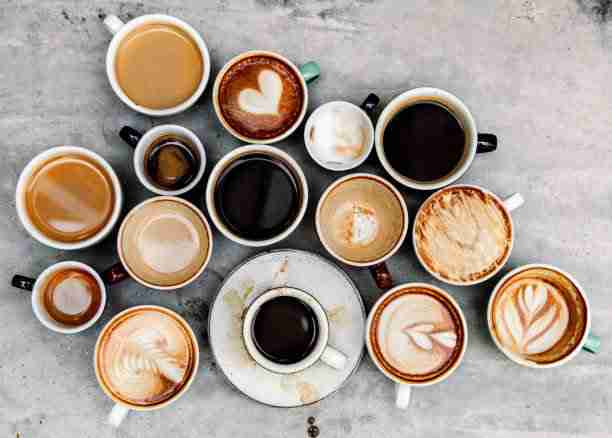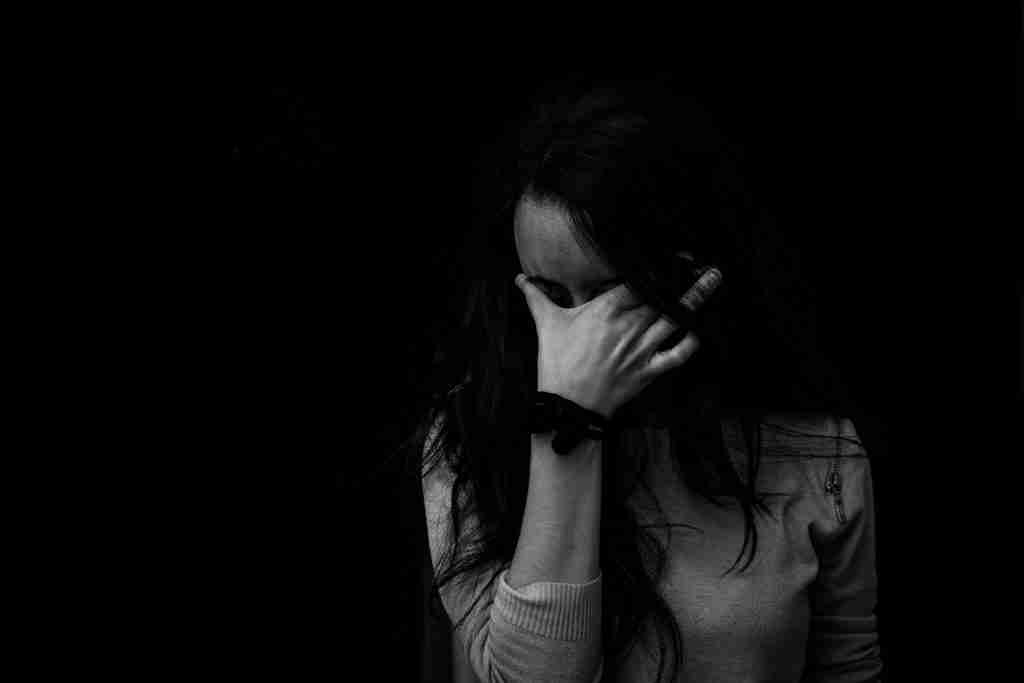
We all love our coffee. However, there is a point where too much of a good thing becomes bad. So today we will answer how much coffee is too much.
If you’ve read our other articles you know that coffee is good for you. But, how much coffee do you have to drink until it becomes a bad thing?
Maximum Cups Per Day
According to our research coffee is actually good for you up to a certain point. A University study shows that drinking a couple of cups of coffee a day is good for your health.
Coffee becomes a problem when you drink more than six cups of coffee a day. This increases the risk of heart disease by up to 22%. Heart disease is one of the four leading causes of death in the United States and if you have a preexisting condition you should be wary of how much coffee you drink.
Ang Zhou of the Australian Center for Precision Health discovered that too much caffeine causes high blood pressure. This is a key risk factor for heart disease and many other diseases. One in four deaths in the United States is due to heart disease.
Knowing the limits of what’s good for you and what’s not is imperative.
Elina Hypponen
Very heavy coffee consumption was associated with an increase in heart disease risk.
The sweet spot of coffee is 1 to 3 cups daily. This amount of coffee actually has heart-protective effects. Compared to coffee drinkers, non-coffee drinkers had an 11 percent increased risk of cardiovascular disease.
Symptoms of Too Much Coffee
If you rely on coffee too much to get you going there may be some symptoms or side effects. Once you drink more than 4 cups of coffee here are some side effects you may feel.
Anxiety

So those of you who suffer from anxiety, coffee may not be a good choice of beverage.
Overall, caffeine is often bad new for people with anxiety
Susan Bowling, a psychologist at the Women’s Health Center at the Wooster Branch of Cleveland Clinic
This is because there is a powerful stimulant called caffeine inside each bean that speeds up all bodily functions including your anxiety.
Consuming more than 200 mg of caffeine can increase the likelihood of anxiety and panic attacks in people sensitive to it.
Insomnia

When your body is exposed to caffeine it starts processing it instantly and it processed in your liver. Once you ingest the coffee the caffeine has a short life in your body and is completely gone in 5 – 7 hours. After 10 hours 75% of the caffeine should be gone from your body so it will not interfere with your sleep at night.
However, if you drink coffee later in the day it can interfere with your sleep schedule. This is because the caffeine in your body may linger longer than expected. This is especially true in people that have a sensitivity to caffeine. It depends on your metabolism and how used to caffeine your body is accustomed to. In general, your body should be fine if you don’t consume caffeine at least 6 hours before you sleep.
Acid Reflux / Digestive Issues

Acid reflux is a common occurrence in the United States. According to studies at least 4 out of 10 people suffer from this condition every week.
This is caused by gastroesophageal reflux disease or GERD. Coffee can aggravate the symptoms of this disease and cause acid reflux and digestive issues. Learn about the effects of coffee on your digestive system and see if you have underlying health issues.
Certain substances in coffee may irritate the esophagus and weaken your lower esophageal sphincter causing a backward flow of stomach contents. This is what causes acid reflux.
The caffeine and acidity in coffee are identified as a trigger for symptoms of GERD. You should opt for dark roasted coffee because there is less caffeine in the coffee. However, it may vary from person to person whether the acidity affects you more or the caffeine.
Urination

If you haven’t read our article about coffee being a dieurtic you should read it. It explains how coffee may make you urinate more often, but it still hydrates you up to a certain amount. Once you drink too much coffee actually starts dehydrating you.
Fatigue

As a stimulant coffee should make you feel more alert and boost your energy levels. Everyone may feel different after a cup of coffee, and this is because everyone reacts to caffeine differently. How caffeine affects your body:
- It prevents your body from signaling that it is tired
- It causes your body to release natural stimulants and “feel good” chemicals.
You may feel more tired after a few cups of coffee because coffee blocks adenosine in the central nervous system. This chemical regulates the sleep-wake cycle and makes you drowsy as it builds up. Coffee temporarily blocks the adenosine receptors from receiving the adenosine, but it doesn’t stop the production. Once the coffee wears off you will feel the effects of the adenosine and feel fatigued.
It is also because you may be feeling dehydrated from the excess urination. Dehydration can lead to low blood pressure which adds to the feeling of fatigue and sluggishness.
Increased Heart Rate
The stimulation of caffeine can cause your heart muscles to beat faster. This phenomenon does not occur in everyone but can be a serious side effect if this happens to you. It can also cause an altered heartbeat rhythm, called atrial fibrillation. This happens when large amounts of caffeine are ingested at a time. This is very common in teens previously with Four Loco.
High Blood Pressure
Caffeine has a dramatic effect on your blood pressure. If you have high blood pressure you should be wary of drinking too much coffee. The effect is short-lived, but it causes a large spike in blood pressure when you consume large amounts of caffeine. Those who regularly drink coffee have higher average blood pressure.
You should avoid caffeine before events that naturally increase your blood pressure. These are activities such as weightlifting and physical labor.
Addiction
Caffeine is addictive because of the adenosine blocking properties of caffeine. Over time your brain creates more adenosine receptors to compensate for the ones blocked by the caffeine.
This results in physical dependence on caffeine and you may get withdrawal symptoms if you stop drinking coffee. Symptoms such as headaches, lack of concentration, drowsiness, and irritability can occur 12-24 hours after your last cup of coffee and may last up to 9 days.
To prevent this slowly decrease the amount of coffee you drink to quit without withdrawal. Symptoms usually peak within the first two days and gradually lessen.
Chronic Headaches

Drinking too much coffee may trigger migraines in those who are prone to headaches. According to a study done by the National Headache Foundation people that consumed 3 or more caffeinated drinks a day were more likely to get migraines.
Some people reported that caffeine triggered their migraines.
Interestingly, despite some patients with episodic migraine thinking they need to avoid caffeine, we found that drinking one to two servings [per] day was not associated with higher risk of headache
Dr. Suzanne Bertisch, assistant professor at Harvard Medical School
It’s all about moderation. As long as you do not consume more than 3 cups worth of caffeine a day you should be fine. Caffeine may trigger an attack, but only in those who consumed a large amount.
There also have been additional surveys done that showed among those who usually never drank coffee, 1 or 2 servings of caffeine was enough to trigger headaches.
Medication That May Be Affected by Drinking Coffee
Some serious symptoms may occur when drinking coffee while on certain medications. Here are some medications that will cause side effects when combined with caffeine.
Ephedrine
This is a medication and a stimulant that prevents low blood pressure. It is usually given to you for temporary relief of shortness of breath. Usually it’s given to people with asthma with chest tightness and wheezing.
An ECA stack is when you combine ephedrine and caffeine which can cause many side effects. Together these two ingredients can suppress your appetite, give you energy, and burn fat. This can be both good and bad.
A combination of caffeine and ephedrine increases blood pressure, insomnia, irritability, and anxiety.
Long term side effects of taking these two ingredients are developing a physical dependency that can cause exhaustion or chronic fatigue if you don’t get your daily dosage. As well as death due to an overdose of this combination. There are 17 linked deaths to this combination.
Theophylline
This is a naturally occurring chemical found in black teas at very low levels. It is also found in green coffee beans at very small amounts. It is a bronchodilator drug that is taken to open up airways in the lungs of people with asthma, wheezing, and breathlessness.
When combined with caffeine it amplifies the side effects of theophylline and can cause nausea, vomiting, insomnia, tremors, restlessness, uneven heartbeats, and seizures.
Echinacea
This is a flowering plant that grows in the U.S. and Canada and has been used for medicine. It has been said to cure sneezing, hacking, and overall cold symptoms.
A side effect of Echinacea may decrease how quickly the body breaks down caffeine. As a result, caffeine may build up in the bloodstream and increase the side of other side effects. If you suffer from preexisting heart conditions you will suffer from adverse heart conditions and be cautious about how much caffeine you drink. It will increase all common side effects including increased blood pressure, heart palpitations, and heart disease.
Conclusion
There are many side effects linked to drinking coffee. However, is the cost worth it? We think it is. Limit yourself to 2 – 3 cups a day and you’ll be doing just fine.
The bottom line is, as long as you keep the amount of caffeine you drink in check it will be fine. Coffee in the right amounts is actually good for you!

